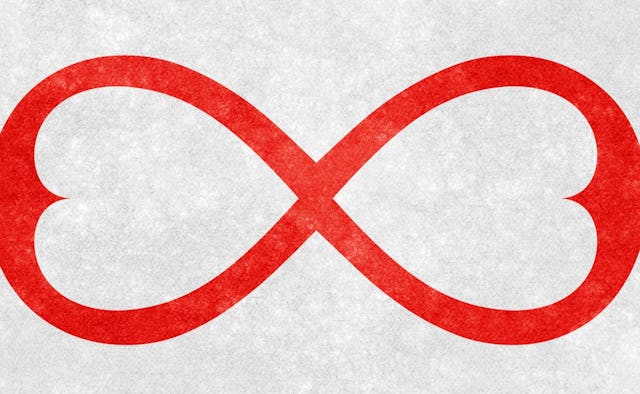If You Keep Score in Love, You Will Probably Lose

I remind myself, “No calculation,” when I find myself starting to bargain or trade or keep score—and I broke this commandment not long ago. Earlier in the day, I’d been on a panel at a conference at Harvard Business School, and I’d just arrived home after a four-hour train ride from Boston. My older daughter had gone to a birthday party, and either my husband or I needed to go out into the cold night and retrieve her. The question of who would make the trek hung in the air. My husband said reluctantly, “I’ll go pick her up.”
By suggesting that my husband “should” do this task, I was undermining his generosity.
This is where I broke my commandment. I wish I’d said, “Oh, thanks so much! After that long train ride, I don’t feel like going out again. I really appreciate it.”
But instead I said defensively, “What have you been doing for the past three hours?” Meaning: You’ve just been relaxing for the last several hours, so really, you should do it. That’s score-keeping: I did this, so now you have to do that. (Or, you got to do this, so now I get to do that.)
He said, “I’ve been taking care of everything here. You’ve been sitting on a train.”
Fortunately, I recognized my mistake before the conversation devolved into a fight about who had had a less taxing afternoon and therefore “should” do this chore. I realized that by suggesting that my husband “should” do this task, I was undermining his generosity. I had turned his offer into an obligation instead of treating it as a thoughtful gesture he’d made for my benefit. I was invoking calculation—even though he’d already volunteered! I backtracked as best I could; it’s much more pleasant to feel grateful for a nice gesture than to squabble about the score.
It’s true that every relationship involves some calculation; it wouldn’t be fair for one person to do everything and the other person to do nothing. In my relationship, though, things tend to balance out evenly, and the atmosphere is much happier when I don’t keep score—when I don’t calculate and just try to do the loving thing.
To read more by Gretchen Rubin, visit her site.
This article was originally published on